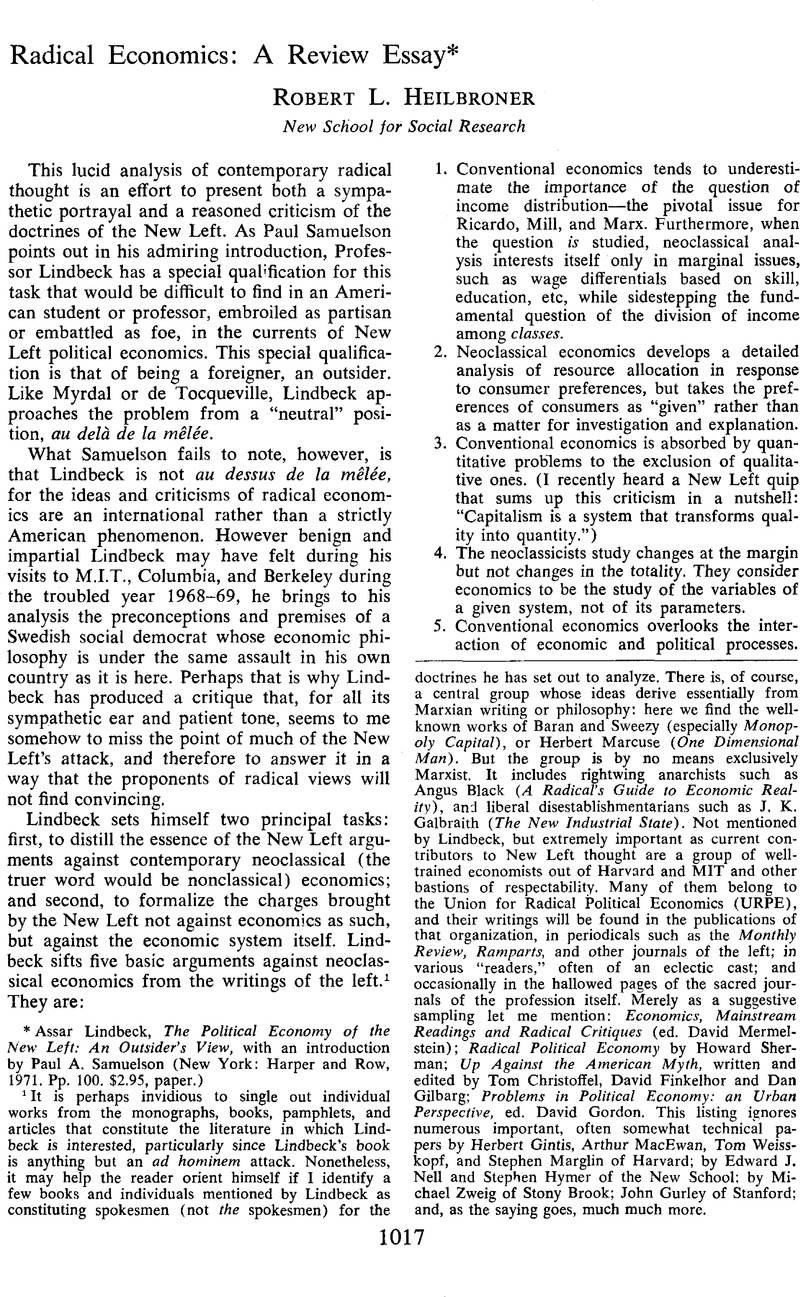Article contents
Radical Economics: A Review Essay
Published online by Cambridge University Press: 01 August 2014
Abstract

- Type
- Book Reviews and Essays
- Information
- Copyright
- Copyright © American Political Science Association 1972
References
1 It is perhaps invidious to single out individual works from the monographs, books, pamphlets, and articles that constitute the literature in which Lindbeck is interested, particularly since Lindbeck's book is anything but an ad hominem attack. Nonetheless, it may help the reader orient himself if I identify a few books and individuals mentioned by Lindbeck as constituting spokesmen (not the spokesmen) for the doctrines he has set out to analyze. There is, of course, a central group whose ideas derive essentially from Marxian writing or philosophy: here we find the wellknown works of Baran and Sweezy (especially Monopoly Capital), or Herbert Marcuse (One Dimensional Man). But the group is by no means exclusively Marxist. It includes rightwing anarchists such as Angus Black (A Radical's Guide to Economic Reality), and liberal disestablishmentarians such as J. K. Galbraith (The New Industrial State). Not mentioned by Lindbeck, but extremely important as current contributors to New Left thought are a group of well-trained economists out of Harvard and MIT and other bastions of respectability. Many of them belong to the Union for Radical Political Economics (URPE), and their writings will be found in the publications of that organization, in periodicals such as the Monthly Review, Ramparts, and other journals of the left; in various “readers,” often of an eclectic cast; and occasionally in the hallowed pages of the sacred journals of the profession itself. Merely as a suggestive sampling let me mention: Economics, Mainstream Readings and Radical Critiques (ed. David Mermelstein); Radical Political Economy by Howard Sherman; Up Against the American Myth, written and edited by Tom Christoffel, David Finkelhor and Dan Gilbarg; Problems in Political Economy: an Urban Perspective, ed. David Gordon. This listing ignores numerous important, often somewhat technical papers by Herbert Gintis, Arthur MacEwan, Tom Weisskopf, and Stephen Marglin of Harvard; by Edward J. Nell and Stephen Hymer of the New School; by Michael Zweig of Stony Brook; John Gurley of Stanford; and, as the saying goes, much much more.
- 3
- Cited by



Comments
No Comments have been published for this article.